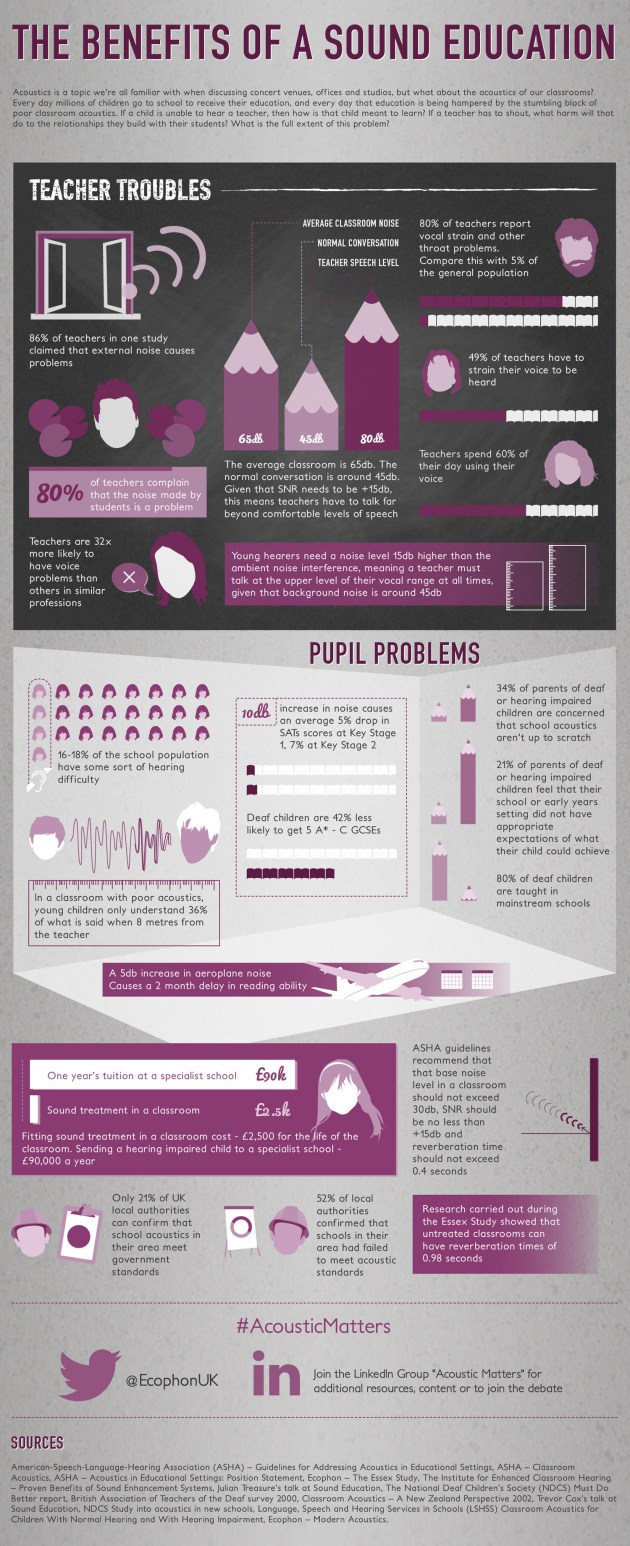A Noisy Classroom Can Help Children with Hearing Impairment in Speech Therapy
When it comes to classrooms, a new study suggests it might actually be beneficial to crank up the volume, for children with hearing loss at least. The study, from Jessica Sullivan, assistant professor of speech and hearing sciences at the University of Washington found that a noisy classroom environment could help train youngsters with hearing-impairment who struggle to comprehend speech over the sound of the environment. Normal brains do this on a daily basis, sorting out background sounds of the music playing to help us listen to the conversation. But for hearing impaired children, this task is not so easy. Children with hearing loss take in sound more slowly, and the brain isn’t experienced or equipped enough to drown out the background noise. This study helps support speech therapy techniques and treatment methods for children with hearing loss and is the first of its kind to demonstrate that auditory training with noise can work in children.
Auditory training is a technique to help train the brain to filter out background noise and enhance the understanding of spoken words instead. Until now, most research on this topic has centered on helping hearing-impaired adults, though the issue is pressing for children as well. For children with hearing loss, a noisy classroom can be a difficult learning environment – even with hearing aids and other sound amplifying devices used to help make a teacher’s voice clearer. This makes learning and paying attention to conversation or the teacher’s directions very difficult.
The Study:
Sullivan studied children ages 6-17 who participated in a three-week auditory training program. Each child attended sever, one-hour sessions in total. The program involves repeated exposure to speech masked by noise to teach the brain how to receive information and process it more efficiently. Each child listened to a series of sentences such as, “We saw two brown bears” covered with background noise (simulating classroom noises). Children were asked to listen and answer questions about the sentence they heard over the noise, with increasing sentence length and more interfering background noise as the tasks progressed. The study found a 50 percent increase in speech comprehension (recognizing the words in sentences) in background noise for children who completed the program. The study was published in the Journal of the Acoustical Society of America.
Implications:
For parents, educators and speech therapists, this study provides great insight into how to improve the life of children with hearing loss. Using an auditory training program, children can improve their ability to hear language over background noises, making them better able to respond to others, carry on a conversation, follow the instructions of the teachers and overall gives them increased potential to succeed academically. In speech therapy, it is important to know the implications of hearing loss, and that language occurs everywhere, in the classroom in particular, and that if a child cannot hear the teacher’s instructions they will fail at direction-following tasks and miss vital information.
Parents should know what their children are listening to, how their child’s classroom is set up and how the noise might be distracting or hindering in communication.
Other accommodations for children with hearing loss in the classroom can include:
– Teaching self advocacy skills
– Modifying the environment to include closer seating to the teacher, reduce noise and reverberation with carpeting, draperies, acoustic ceiling tile, and/or acoustical wall treatments, and arranging seats in a semi-circular arrangement.
– Teachers can stand where the student can view their lips, pre-teach vocabulary concepts that will be introduced in school and use visuals and overheads to supplement what’s being said or explained.




